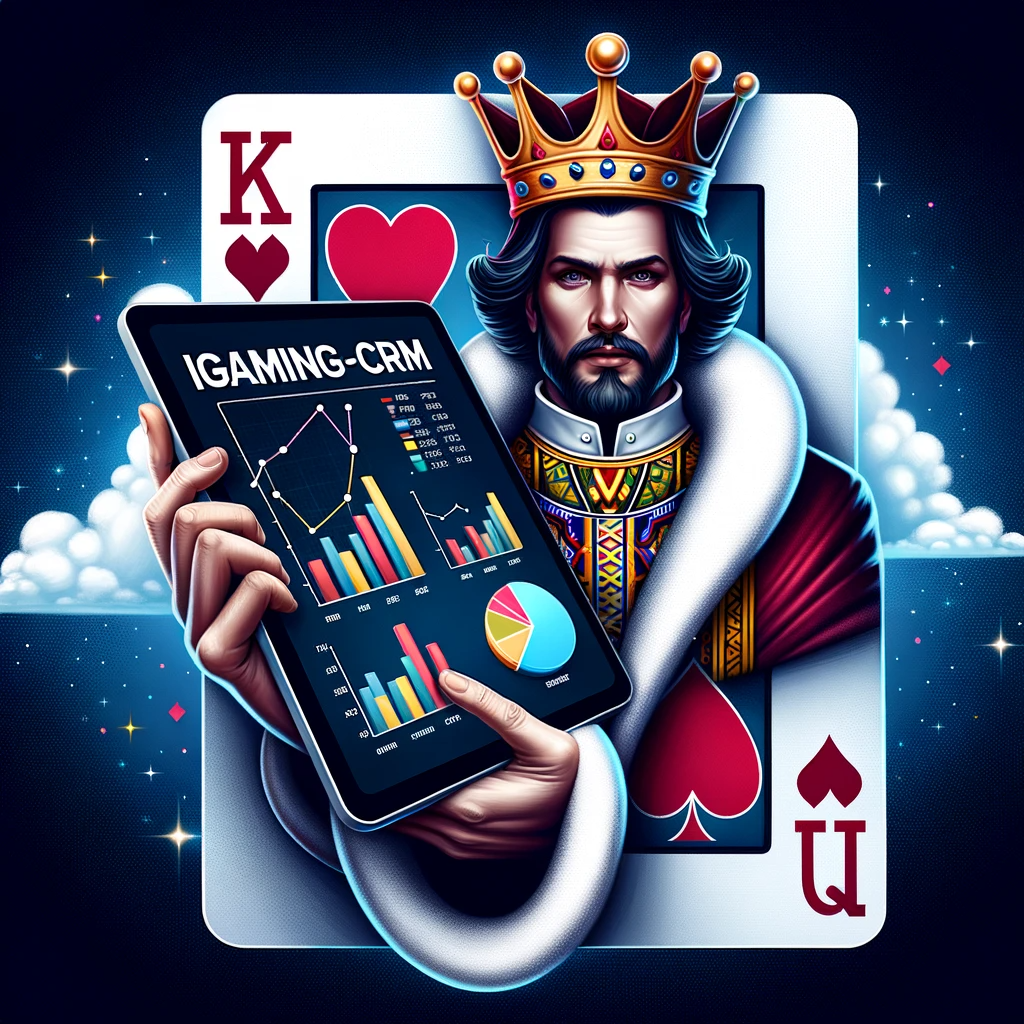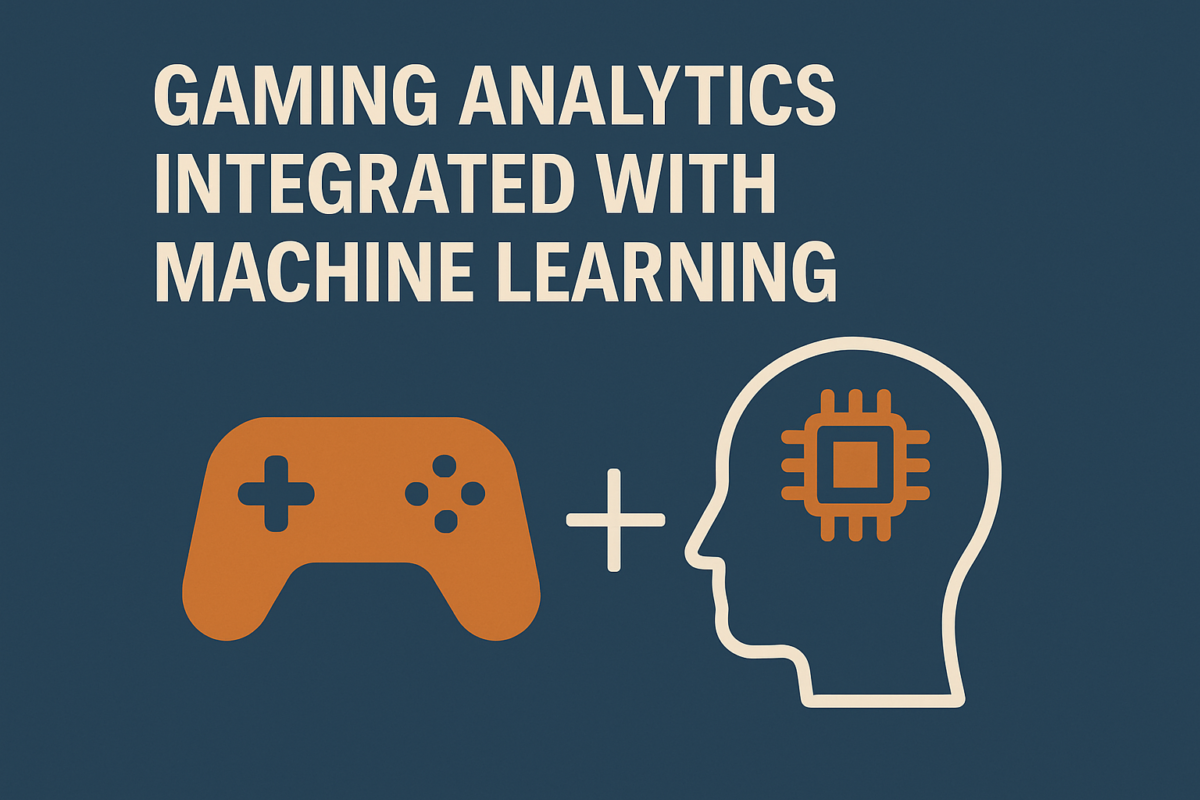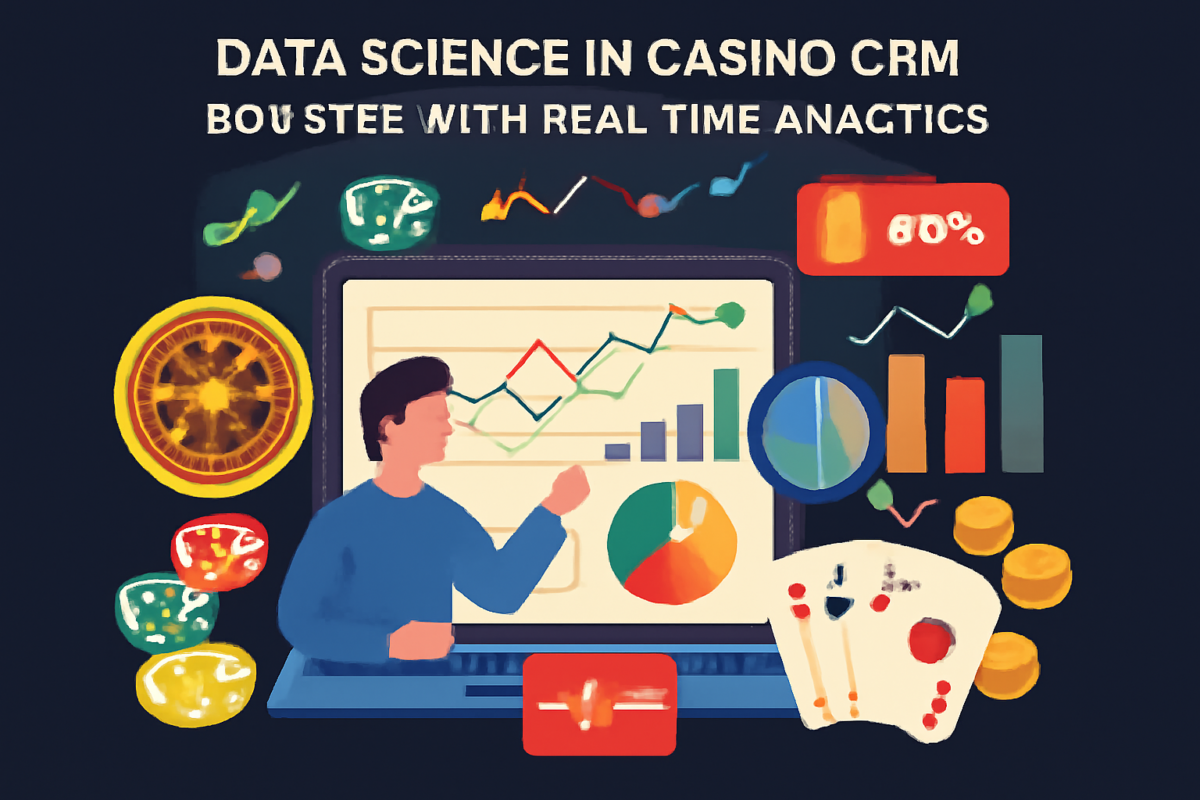Gaming Analytics Integrated with Machine Learning
Introduction
The online gaming industry is in a constant state of evolution driven not just by new games and similar Gaming Analytics or regulations, but by data and predictive intelligence. In this high-stakes arena, machine learning (ML) is transforming how platforms understand users, predict trends, and stay competitive.
From CRM predictive models in online casinos to large-scale Gaming Analytics in the industry, AI is reshaping player engagement. This blog dives deep into how machine learning gaming models are forecasting future iGaming behavior and reshaping the digital casino experience.
What is Machine Learning in iGaming and Gaming Analytics?
Machine learning is a subset of AI that enables systems to learn from data patterns and improve over time without explicit programming. In iGaming and Gaming Analytics, machine learning powers tools that:
- Analyze player behavior
- Predict future trends
- Personalize content
- Optimize marketing and retention strategies
When integrated into CRM online casinos, machine learning drives automation, customization, and strategic foresight.
ALSO READ: How to Get Investors Excited About Your iGaming Business
Why Trend Prediction Matters in Online Gaming
Success in iGaming hinges on anticipating what players want before they ask for it. Predicting trends isn’t just about keeping up, t’s about leading the market.
Why Gaming Trend Prediction Is Crucial:
- Stay ahead of competitors
- Improve player acquisition with relevant content
- Reduce churn through personalized engagement
- Optimize inventory and promotions
- Boost ROI on marketing spend
Key Machine Learning Use Cases in iGaming
Let’s explore some high-impact applications of machine learning gaming tools:
1. Player Behavior Forecasting
ML algorithms analyze:
- Playtime patterns
- Game preferences
- Betting strategies
- Win/loss emotional triggers
This helps in customizing player journeys and anticipating behavior changes.
2. Predictive Bonus Strategies
Rather than a “spray and pray” approach, CRM predictive models use AI to determine:
- Which bonuses work best for which users
- When to offer them
- How they affect future engagement
3. Fraud & Risk Detection
By continuously learning from past anomalies, ML models identify suspicious behavior (multi-accounting, bot activity, bonus abuse) in real time.
CRM in Online Casinos: A Smarter Era
Traditional CRM tools organize contacts and campaigns. Modern CRM technology advancements in iGaming go much further.
Smart CRM Features:
- AI-based player segmentation
- Real-time emotional response tracking
- Dynamic content personalization
- Lifetime value (LTV) prediction models
- Churn risk scoring
This makes CRMs proactive engines of engagement rather than passive databases.
Analytics and the Future of iGaming
The analytics gaming industry is no longer just about dashboards and KPIs, it’s about actionable prediction.
ML-fueled analytics help iGaming operators:
- Launch new game titles at the right moment
- Detect underperforming game categories
- Optimize UX/UI based on interaction heatmaps
- Forecast seasonal or event-based spikes in engagement
These analytics aren’t generic, they’re personalized to each user segment, making marketing, support, and product decisions razor-sharp.
Real-World Example: CRM Predictive Models in Action
A leading online casino used a machine learning-powered CRM to:
- Segment players into micro-behavioral cohorts
- Apply adaptive bonuses based on ML models
- Trigger re-engagement campaigns for high-value at-risk users
Result?
- 🎯 32% reduction in churn
- 💰 21% increase in lifetime player value
- 🧠 Faster onboarding time with behavior-based tutorials
The Future of AI Trends in Online Gaming
The road ahead is increasingly data-driven and AI-enhanced. Here’s what’s coming next:
Upcoming AI Trends in iGaming:
- Voice-controlled gameplay interfaces
- Real-time emotion-based gaming adjustments
- AI-assisted live dealer interactions
- Augmented reality (AR) casino rooms powered by ML forecasts
- Sustainability & responsible gaming tracking via predictive ethics models
Comparison: Traditional Gaming Analytics vs ML-Enhanced Systems
| Feature | Traditional Systems | Machine Learning Systems |
| Data Scope | Historical only | Real-time + predictive |
| Personalization | Manual | Automated & adaptive |
| Trend Forecasting | Guesswork-based | Data-driven modeling |
| Player Segmentation | Demographic-based | Behavioral and emotional |
| CRM Integration | Siloed | Embedded & intelligent |
FAQs
Q1: Can small operators use ML in iGaming?
A1: Yes. Many ML-powered CRM tools are available as SaaS platforms with tiered pricing.
Q2: Is machine learning GDPR-compliant?
A2: Most AI CRM vendors offer GDPR-ready frameworks, with anonymization and opt-out features built-in.
Q3: How accurate are gaming trend predictions?
A3: Accuracy improves with time and data volume. The more diverse the player behavior data, the better the ML model performs.
Internal & External Links
Internal:
- The Psychology Behind Player Churn: How CRM Data Predicts iGaming Loyalty
- AI-Driven Sentiment Analysis in CRM Tools for High-Stakes iGaming
External:
- Forbes on AI in Online Gaming
Call to Action
Curious about integrating machine learning into your CRM for smarter trend prediction? Let’s future-proof your iGaming platform with real-time behavioral forecasting and AI-driven insights. Contact our team or request a free ML consultation demo today.


